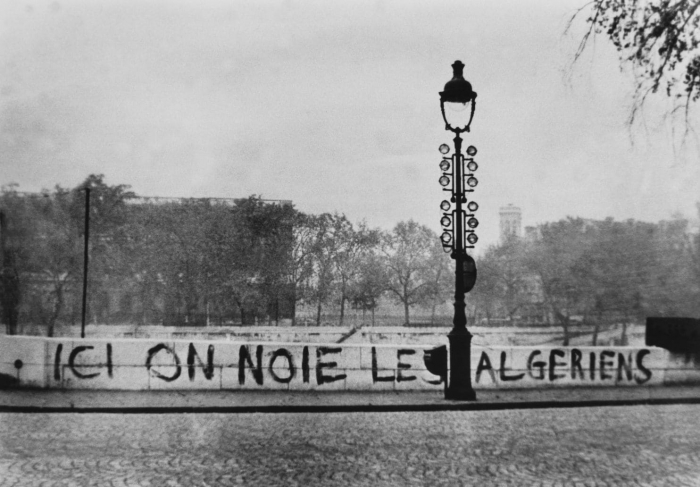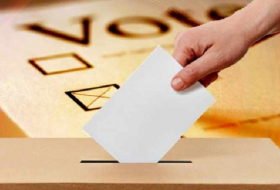It ranks among the bloodiest acts of state repression against peaceful protesters in modern European history, but few remember the horror.
On Oct. 17, 1961, in the final months of the Algerian war, thousands of pro-independence Algerian demonstrators marched through the graceful boulevards of the French capital. They were pushing for an end to a seemingly endless conflict and for a halt to the ghettoization that so many faced in metropolitan France.
Neither was to be: French security forces quickly descended on the crowds in a murderous rampage, even throwing bodies into the River Seine when they had finished their work. Some historians estimate that police killed as many as 200 people. No one can say for sure.
This year is not a special anniversary of the "Paris massacre." But for some, especially in France's predominantly Arab and Muslim communities, it is. The Algerian protesters killed in 1961 were ultimately attacked under an antecedent of the law that French President Emmanuel Macron has now, with certain revisions, made permanent: the "state of emergency." For Arabs and Muslims in France, this law is a painful reminder of an even more painful past.
Macron and his administration have billed these emergency powers, which allow administrative authorities to search and detain terrorism suspects without warrants, as the surest means of stopping the wave of terrorist violence that has claimed more than 230 lives in this country since the beginning of 2015. The measures have been in place since the day after the November 2015 attacks in Paris. Two weeks ago, the French Parliament's lower house voted, by an overwhelming majority, to extend many of the provisions indefinitely.
But France's state of emergency has a clear history that is fundamentally entwined with the nation's colonial past and especially with the nightmare of that October night in 1961.
In 1955, during the early stages of the Algerian war, the French government passed a law that would enable authorities to curb revolutionary insurrection. In a territory that ultimately grew to encompass all of metropolitan France, authorities could prevent suspected Algerian revolutionaries from congregating in public and exchanging ideas. By early October 1961, the emergency powers included a special nighttime curfew imposed only on Algerian workers, all of whom were French citizens at the time. It was partly this discrimination that so many gathered to protest on the night of Oct. 17.
Strictly speaking, there was no "direct link" between the law itself and the attack on the Algerian protesters, said Sylvie Thénault, a prominent French historian of Algerian independence who has written on the state of emergency. That was the doing of Paris's police chief, Maurice Papon, the same man who, during World War II, had overseen the deportations of some 1,600 Bordeaux Jews to their deaths in Nazi concentration camps. He would rise to be a government minister in the late 1970s, but was convicted of crimes against humanity in 1998.
"There was a racist, discriminatory element to the law, but it had other dimensions to it as well, such as thwarting political opponents," Thénault said. "On an extremely general level, however, you can say that the state of emergency did play a part in the exceptional measures that were used to single out and isolate Algerians."
For Yasser Louati, a prominent French civil liberties activist, the history speaks for itself, and the current French government, by passing a version of this same law, has ultimately sent a clear message to the country's sizable Arab and Muslim populations. As he put it: "It means their lives don't mean much."
"This was the police killing — murdering — more civilians than in any country in the Western world since the Second World War, and that's true to this day," said Arun Kapil, a scholar of French colonial history who teaches at the Catholic University of Paris. "And this happened in a Western democracy."
As a point of comparison, at least 91 Jews were killed in the 1938 Kristallnacht assaults throughout Germany, and at least 155 students in the 1989 Tiananmen Square massacre, although other estimates place that figure much higher.
"What's the difference between then and the situation today?" Louati asked. "No, we don't have people being killed in the streets anymore, but we do have thousands of raids being carried out without warrants, because people have been reported by their neighbors or their colleagues."
Many Muslims perceive France's war on terrorism as a crackdown on Muslims by another name. Statistics show some truth behind that perception.
Since November 2015, French police have conducted approximately 4,000 home raids and have placed roughly 400 people under house arrest, according to statistics collected by Amnesty International. According to data compiled by the Collective Against Islamophobia in France (CCIF), an organization devoted to combating discrimination, about 25 percent of those house arrests have involved Muslims. That community is believed to account for no more than 10 percent of the total population.
During the French presidential election in the spring, some in France's Arab and Muslim communities saw a champion in Macron, who advocated — in a contest that largely hinged on immigration — principles of tolerance and cohesion. While his opponent, the far-right Marine Le Pen, railed against "radical Islam," Macron went so far as to proclaim his country's colonial past "a crime against humanity."
But the new president's image is no longer quite that of a savior among those in France's largest minority group, Louati said. Although his predecessor, François Hollande, shattered decades of government silence in 2012 by calling the Paris massacre a "bloody repression," Macron has said nothing, even as he champions his new security bill.
For Louati and others, the silence is deafening. "The fact that he doesn't have the political spine to move beyond this law means that we will have to carry this burden into the future."
The Washington Post















































